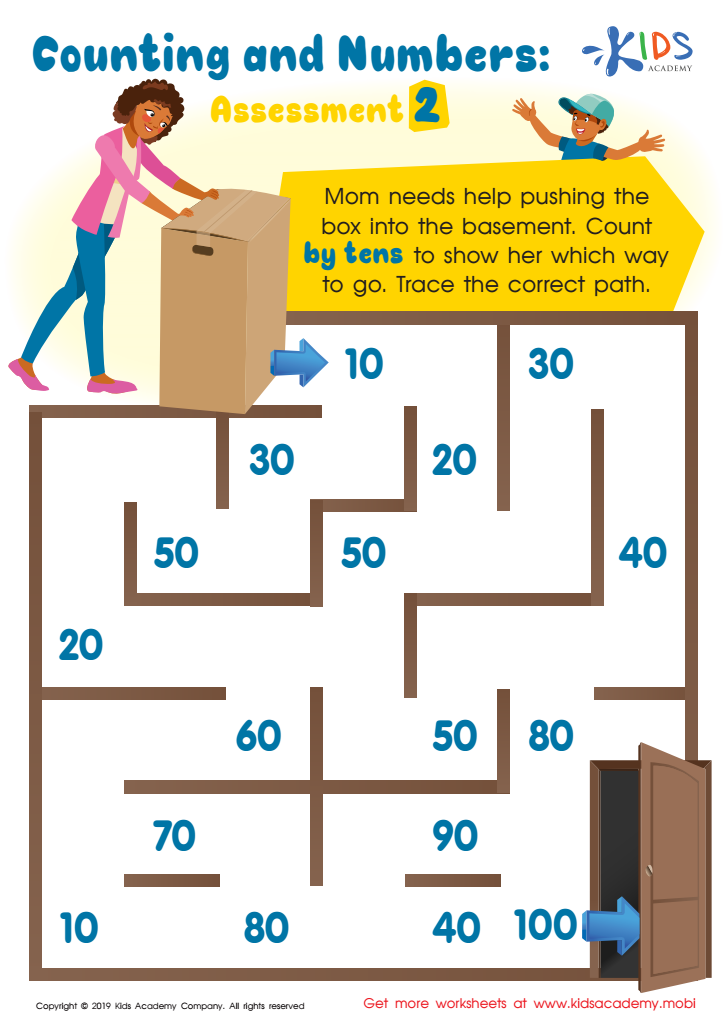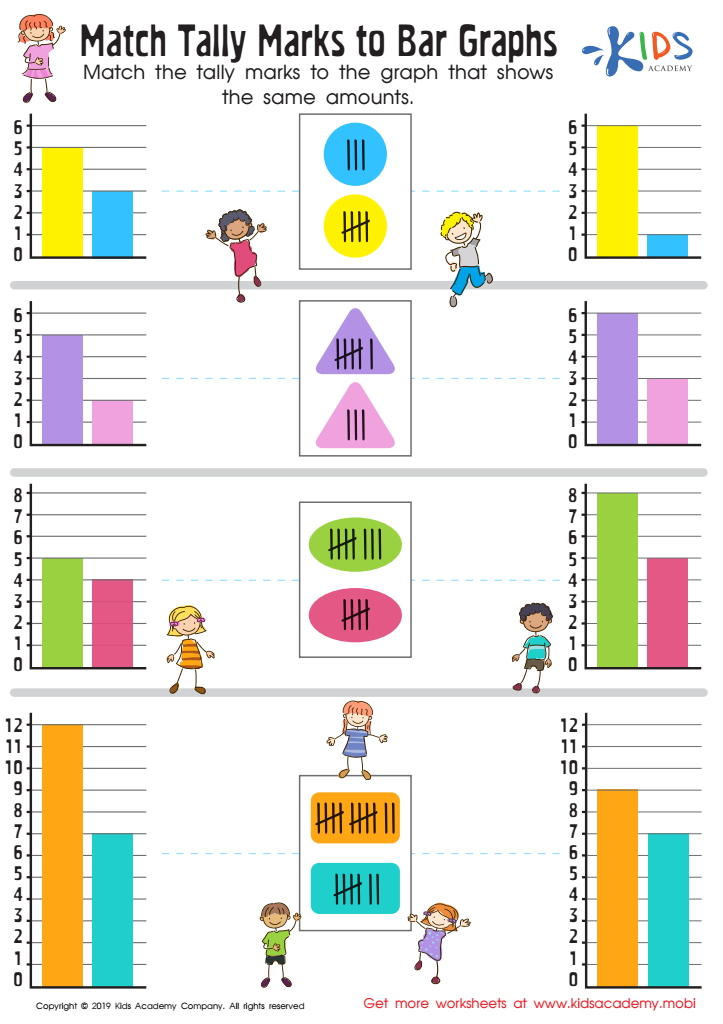Recognizing Patterns Numbers Worksheets for Ages 5-7
3 filtered results
-
From - To
Explore our engaging "Recognizing Patterns Numbers Worksheets" designed specifically for children aged 5-7. These interactive worksheets help young learners develop critical early math skills by identifying and completing number patterns. Through vibrant illustrations and intuitive exercises, children will enhance their cognitive abilities while enjoying the learning process. Each worksheet provides a fun challenge that promotes problem-solving, critical thinking, and number familiarity, setting a strong foundation for future math success. Whether at home or in the classroom, these activities foster an enjoyable environment for discovering the fascinating world of patterns and numbers. Start your child’s journey to math mastery today!


Sort and Count to the Moon Worksheet


Counting and Numbers: Assessment 2 Worksheet


Match Tally Marks to Bar Graphs Worksheet
Recognizing patterns in numbers is a fundamental skill for children aged 5-7 as it lays the groundwork for their mathematical understanding and problem-solving abilities. Patterns help young learners make sense of the world around them by noticing relationships and structures. For parents and teachers, fostering this skill is crucial because it encourages critical thinking and enhances cognitive development.
Understanding patterns prepares children for more complex math concepts, such as addition, subtraction, and later, multiplication and division. When students identify trends—not just in numbers, but in everyday contexts—they gain confidence in their analytical skills. This skill also translates beyond math, promoting logical reasoning in various subjects and real-life situations.
Emphasizing pattern recognition can boost engagement in learning. Fun activities, like hands-on games or visual aids, make math enjoyable and approachable, reducing anxiety about the subject. Additionally, strong early math skills correlate with future academic success.
By nurturing pattern recognition in young learners, parents and teachers equip children with essential tools for lifelong learning and adaptability, setting them on a path to future success in academics and in life. Recognizing patterns is not just about math; it's about developing resilient, thoughtful individuals ready to face challenges.
 Assign to My Students
Assign to My Students
















